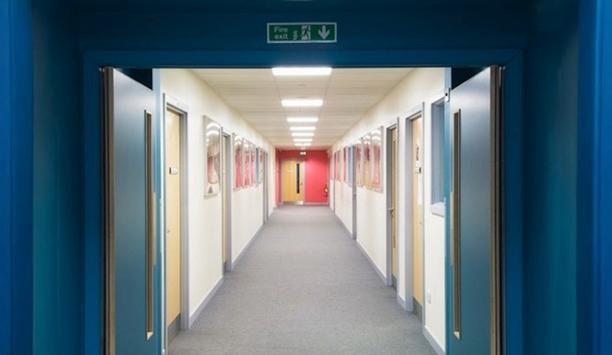New government legislation due to come into force in the United Kingdom on July 1st will require electrical installations in privately rented properties to be tested and inspected at least once every 5 years. The Electrical Safety Standards in the Private Rented Sector Regulations (2020) will require landlords to enlist qualified electricians to complete inspections and provide certification to tenants – or face fines of up to £30,000.
While the risk of fire can never be entirely eliminated, the new legislation will introduce higher levels of safety and ensure that one of the primary causes of fire – electrical malfunctions – is regularly tested for. There are a number of procedures and regulations in place for when a fire has already started, but this new law will help to reduce the chances of it getting to that point. After all, prevention is the best form of protection.
No safety procedure or response plan will ever fully prepare someone for the reality of a fire. However, a comprehensive prevention strategy and use of the latest technologies to quickly detect and respond to a fire can at least reduce the potential risk to both life and property.
Defensive detection
A fire can spring from many sources. Current standards do a good job of ensuring properties are well equipped to defend against fires created by overcurrent caused by overloads and short circuits.
A comprehensive prevention strategy and use of the latest technologies to quickly detect and respond to a fire can at least reduce potential risk
However, electrical fires can also result from mistakes made during the installation process, namely loose cabling or aging circuits that will not be detected by overcurrent protection. Indeed, a defective or worn insulation is the cause of 14% of all electrical fires in buildings.
The danger of landlords only performing the bare minimum to protect their buildings is that, should a fire start from a source they haven’t accounted for, the loss and disruption to property could be devastating.
For maximum protection, individuals need reliable, innovative products that excel beyond the minimum standards to prevent a fire from starting in the first place. The pending legislation will add to this safety from the start. It will require landlords to use qualified electricians when installing, repairing and maintaining systems, benefitting both landlords and tenants by mitigating electrical issues and instilling greater confidence.
Protection against insulation faults
The risk of cable insulation faults grows over time and the consequences can be severe. Low-intensity arc faults are more likely to occur in humid, dusty environments, causing injury and deadly fires if precautions aren’t taken. Protection against insulation faults within cables can be assured by residual current devices (RCD), which are triggered by earth leakage currents exceeding 300mA.
For maximum protection, individuals need reliable, innovative products that excel beyond the minimum standards to prevent a fire from starting
Additionally, final circuits in critical locations (as recommended in IEC 60364), should be protected by an arc fault detection device (AFDD). This is a circuit breaker that automatically cuts off the electricity supply when it detects an arc fault in the circuit. By immediately stopping the supply, AFDDs stop arc faults from reaching temperatures where fires can break out.
As well as ensuring that private tenants feel more safe and secure, the new legislation represents an opportunity for electricians to secure more work and develop their skills. Going forward, as the demand for electricians in the private rented sector rises, we expect to see greater opportunity for electrical engineers to win long running contracts with landlords and property managers.
Fire may be a risk, but it is not unavoidable. This new legislation promises greater peace of mind for private tenants by ensuring that electrical standards are met and hazards reduced. With expert knowledge and the correct approach to electrical fire prevention, a fire can be extinguished before any damage is done.


















